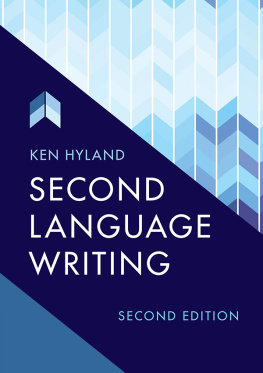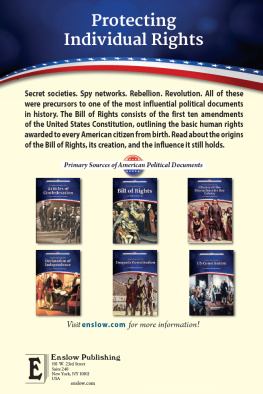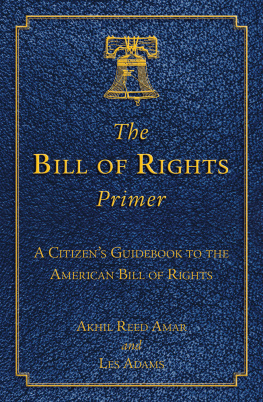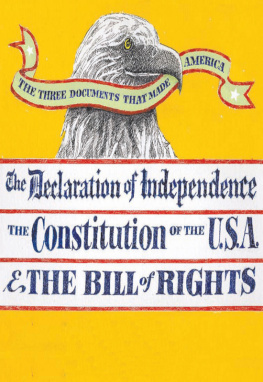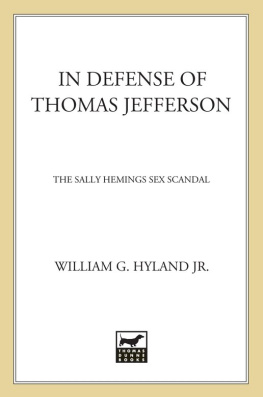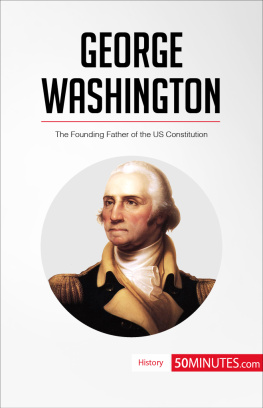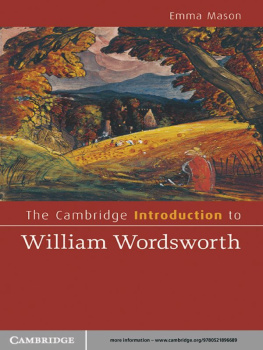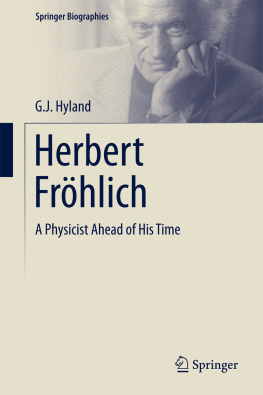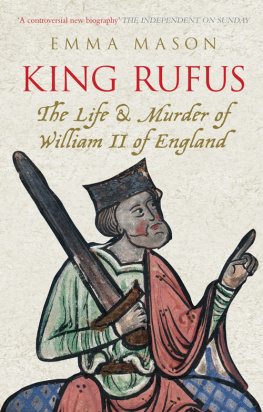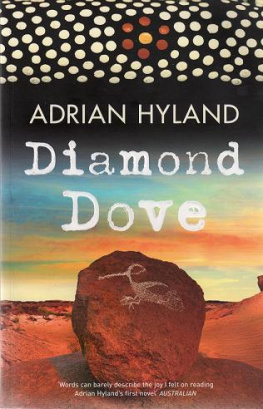William G. Hyland - George Mason: The Founding Father Who Gave Us the Bill of Rights
Here you can read online William G. Hyland - George Mason: The Founding Father Who Gave Us the Bill of Rights full text of the book (entire story) in english for free. Download pdf and epub, get meaning, cover and reviews about this ebook. publisher: Regnery History, genre: Non-fiction. Description of the work, (preface) as well as reviews are available. Best literature library LitArk.com created for fans of good reading and offers a wide selection of genres:
Romance novel
Science fiction
Adventure
Detective
Science
History
Home and family
Prose
Art
Politics
Computer
Non-fiction
Religion
Business
Children
Humor
Choose a favorite category and find really read worthwhile books. Enjoy immersion in the world of imagination, feel the emotions of the characters or learn something new for yourself, make an fascinating discovery.

- Book:George Mason: The Founding Father Who Gave Us the Bill of Rights
- Author:
- Publisher:Regnery History
- Genre:
- Rating:5 / 5
- Favourites:Add to favourites
- Your mark:
- 100
- 1
- 2
- 3
- 4
- 5
George Mason: The Founding Father Who Gave Us the Bill of Rights: summary, description and annotation
We offer to read an annotation, description, summary or preface (depends on what the author of the book "George Mason: The Founding Father Who Gave Us the Bill of Rights" wrote himself). If you haven't found the necessary information about the book — write in the comments, we will try to find it.
George Mason: The Founding Father Who Gave Us the Bill of Rights — read online for free the complete book (whole text) full work
Below is the text of the book, divided by pages. System saving the place of the last page read, allows you to conveniently read the book "George Mason: The Founding Father Who Gave Us the Bill of Rights" online for free, without having to search again every time where you left off. Put a bookmark, and you can go to the page where you finished reading at any time.
Font size:
Interval:
Bookmark:

Praise for
GEORGE MASON
George Mason: The Founding Father Who Gave Us the Bill of Rights , is a welcome contribution to the literature about one of the most importantyet least knownfounders of the American Republic. Drawing heavily upon original documents and research, author Hyland has produced a valuable work which should put all of us in his debt. Highly recommended for scholars, students, and the general public alike.
ROBERT F. TURNER , professor of law at the University of Virginia and co-founder, distinguished fellow, and associate director of the Center for National Security Law
William Hylands eloquent work is a welcome addition to the growing library of books about George Mason, author of the Virginia Declaration of Rights. In this new book, Masons often under-appreciated contributions to the Revolutionary period and to the U.S. Constitution, as well as his relationships with family and contemporaries, are explored and examined in a personal and engaging fashion. Anyone interested in Mason and the founding of the United States would enjoy reading this intimate portrait of one of Americas greatest statesmen.
SCOTT STROH , executive director of George Masons Gunston Hall
George Mason has always been considered one of the Founding Fathers, but one who stood just outside the main spotlight. Now, fortunately, William Hyland has moved Mason into that spotlight by his illuminating and carefully researched biography of this intriguing figure. Hyland provides a scholarly portrait of Mason with new emphasis on the complete Masonhis wives, children, friends, business affairs, physical ailments, and his treasured Gunston Hallwith this splendid and balanced new chronicle. Hylands clear-eyed review will enlighten anyone seeking to understand the special role that Mason played in breaking from England and creating a new nation with a governing structure that rests on safeguarding human rights.
ARTHUR DOWNEY , author of The Creole Affair: The Slave Rebellion that Led the U.S. and Great Britain to the Brink of War and Civil War Lawyers: Constitutional Questions, Courtroom Dramas, and the Men Behind Them
Thomas Jefferson called George Mason the Cato of his country, and the renowned biographer of Jefferson, Dumas Malone, claimed that more than any other single AmericanGeorge Mason may be regarded as the herald of this new era. Such praise and acclaim were also voiced by James Madison, George Washington, and a host of American Founding Fathers. But Masons name is hardly known today, and the studies of his life and thought are few. But William Hyland in this seminal biography has set the record straight. In close, scholarly examinations of Masons writings, Hyland demonstrates the profound influence he had on Revolutionary Americas history and thought; and he does so in a way which presents to us the man we have forgotten. Textual study and biography are hand in glove. The former sheds great light on Mason the fiery opponent of slavery, the man of unbending principle who voted against the Constitution though it cost him his friendship with his life-long friend and neighbor, George Washington, and who shunned public life out of an intense devotion to his family, home, and fields. William Hyland set the scholarly bar very high in this great and much needed book, and we are in his debt for seeing his task through successfully.
WILLIAM WILSON , professor emeritus of religious studies at the University of Virginia and former director of graduate studies at the Jefferson Scholars Foundation
To Lourdes, my love, my life, and the woman who mended a broken heart. When we met, my life began again. You are my true soul mate, a blessing, and my love for you shall live forever.
George Mason was the most respected founder in his own time, [but]... virtually invisible in our time.
JOSEPH J. ELLIS , Founding Brothers: The Revolutionary Generation (2002)
Reputation, what they sometimes called character, had been paramount in the minds of the founders from the earliest phases of the Revolution. A mans actions would now determine his reputation. Character was performative, for outward consumption.
LORRI GLOVER , Founders as Fathers (2014)
A merica was woven together by three pieces of political paper: the Declaration of Independence, the Constitution, and the Bill of Rights.
The creation of the American experiment is Masons true enduring legacy. But his contribution has been obscured by the accidents of history and his self-effacing character. Masons creative capacity lies buried in the inner folds of the mans personality, beyond the reach of traditional biographical methods of discernment.
Masons role in the Revolution and the Founding has been buried in almost two and a half centuries of public oblivion. It is time Mason was rescued from this historical abyss as one of the least known of Americas founding patriots. The sum of Masons writings is an astonishing accomplishment, yet in each instance, Masons individual work was absorbed by a political coalitionand his name lost to public fame. Anonymity, however, was more than a historical byproduct of the character of his work. It was also a matter of preference for Mason. His advice to his sons, to prefer the happiness and independence and a private station to the troubles and vexations of a public business, was advice he himself followed. His contemporaries efforts to elect him to office were met with persistent refusals. George Mason, it has been said, was a thinker and advisor rather than a publicist.
The chronological terrain over which Masons story moves is highly contested ground. My task is to attempt a meticulous personal and professional recovery of George Mason, a man whose enormous political and intellectual capacities were crucial to the founding of the American Republic. This book is not a free fall into Mason idolatry. It is a broad portrait of Mason and of the world in which he lived. While not scanting his vibrant intellectual life, I have also collected anecdotes that bring this brilliant man to life. The resulting account of Masons life and work will, I hope, offer an interpretation fresh and surprising even to those best versed in the literature of the Revolutionary period. The political and personal sides of Masons story, blended together, lead to an inevitable conclusion: George Mason deserves careful and renewed focus.
Every fact bearing upon the character and service of Mason, whose visionary mental gifts helped create a form of government that is a model for the world, should receive warm appreciation from anyone who cares about individual freedoms. Masons understanding of liberty is at the heart of America. His philosophy of the citizens authority and control over their government is the basis for our self-rule.
Quite simply, given the influence of Masons political writings, his name should be more known. Mason should be on the same level with Thomas Jefferson, James Madison, and Alexander Hamilton.
No mention of George Mason.
History has consigned Mason to the second tier of Founders. The public renown of patriotic icons Jefferson and Washington as votaries of liberty is so monumental that nothing can profoundly affect their reputations. The goal of this book is not to take recognition away from them, but to assign more public credit to Mason. Jefferson himself admitted that the Declaration of Independence he wrote was neither aiming at originality of principle or sentiment... it was intended to be an expression of the American mind, and to give to that expression the proper tone and spirit called for by the occasion.
And Mason was directly responsible for famous language in the Constitution, as well. He supplied the phrase aid and comfort in the definition of treason. And it is due to Mason that the president can be impeached for high crimes and misdemeanors. He also wrote major portions of the presidential oath of office.
Font size:
Interval:
Bookmark:
Similar books «George Mason: The Founding Father Who Gave Us the Bill of Rights»
Look at similar books to George Mason: The Founding Father Who Gave Us the Bill of Rights. We have selected literature similar in name and meaning in the hope of providing readers with more options to find new, interesting, not yet read works.
Discussion, reviews of the book George Mason: The Founding Father Who Gave Us the Bill of Rights and just readers' own opinions. Leave your comments, write what you think about the work, its meaning or the main characters. Specify what exactly you liked and what you didn't like, and why you think so.

